What Role Does Material Selection Play in the Durability of Circular Waveguide Transitions?
In the demanding world of microwave technology, the longevity and reliability of Circular Waveguide Transitions depend heavily on the materials used in their construction. Material selection serves as the cornerstone of durability, directly influencing performance characteristics such as signal integrity, thermal stability, and resistance to environmental factors. Advanced Microwave Technologies Co., Ltd. recognizes that proper material choices can mean the difference between a component that fails prematurely and one that delivers decades of reliable service in critical applications ranging from satellite communications to defense systems.
Critical Material Properties Affecting Waveguide Longevity
Thermal Expansion Characteristics and Heat Dissipation
The thermal properties of materials used in Circular Waveguide Transition manufacturing play a pivotal role in determining long-term durability. When high-frequency signals propagate through waveguide structures, they generate heat that must be effectively managed to prevent component failure. Advanced Microwave Technologies Co., Ltd. carefully selects materials with optimal thermal expansion coefficients to minimize stress-induced deformation during temperature cycling. Copper, for instance, offers excellent thermal conductivity with a coefficient of thermal expansion of approximately 16.5 µm/m°C, making it ideal for applications where rapid heat dissipation is crucial. The company's precision engineering ensures that thermal expansion mismatches between different materials are minimized, preventing the development of stress concentrations that could lead to cracking or joint failure. In satellite communication systems operating in space environments, where temperature variations can exceed 200°C, this thermal management becomes critical for maintaining signal integrity and component longevity.
Electrical Conductivity and Signal Integrity Preservation
The electrical properties of materials directly impact both the immediate performance and long-term durability of Circular Waveguide Transition components. High electrical conductivity is essential for minimizing insertion loss and maintaining signal quality over extended periods. Advanced Microwave Technologies Co., Ltd. utilizes high-purity copper and aluminum alloys that maintain their electrical properties even under prolonged exposure to high-frequency electromagnetic fields. The company's materials are selected to resist degradation from electromigration, a phenomenon where metal atoms migrate under the influence of electric current, potentially causing conductor thinning and eventual failure. Silver-plated surfaces are often employed to further enhance conductivity while providing additional protection against oxidation. These carefully chosen materials ensure that the waveguide transitions can operate efficiently up to 110 GHz while maintaining their electrical characteristics throughout their service life, which is particularly important in defense applications where reliability cannot be compromised.

Mechanical Strength and Structural Integrity
The mechanical properties of materials used in Circular Waveguide Transition construction determine their ability to withstand physical stresses, vibrations, and mechanical loading without degradation. Advanced Microwave Technologies Co., Ltd. employs materials with high yield strength and fatigue resistance to ensure structural integrity under demanding operational conditions. The company's ISO 9001:2015 certified manufacturing processes incorporate rigorous material testing to verify that mechanical properties meet or exceed specification requirements. High-strength aluminum alloys are often selected for applications requiring lightweight construction without compromising durability, while stainless steel variants are chosen for harsh environmental conditions where corrosion resistance is paramount. The mechanical design considers stress concentration factors and incorporates generous safety margins to prevent failures due to unexpected loading conditions. This attention to mechanical properties ensures that waveguide transitions can withstand the rigorous demands of aerospace applications, including launch vibrations, thermal cycling, and long-term space exposure.
Environmental Resistance and Corrosion Protection
Oxidation Resistance and Surface Protection
Environmental factors pose significant challenges to the long-term durability of Circular Waveguide Transition components, making oxidation resistance a critical material selection criterion. Advanced Microwave Technologies Co., Ltd. implements comprehensive surface protection strategies to prevent oxidation and maintain electrical performance over extended periods. The company's material selection process prioritizes alloys with inherent oxidation resistance, such as high-grade aluminum alloys that form protective oxide layers. For applications requiring enhanced protection, specialized coatings and plating systems are employed to create barrier layers that prevent oxygen and moisture penetration. These protective measures are particularly crucial in marine environments where salt spray can accelerate corrosion, or in industrial settings where chemical exposure is common. The company's RoHS-compliant materials and processes ensure that environmental protection does not compromise safety or regulatory compliance. Advanced testing protocols simulate decades of environmental exposure to validate the effectiveness of these protective systems, ensuring that waveguide transitions maintain their performance characteristics throughout their intended service life.
Humidity and Moisture Resistance
Moisture ingress represents one of the most significant threats to Circular Waveguide Transition durability, as it can cause electrical degradation, corrosion, and mechanical failure. Advanced Microwave Technologies Co., Ltd. addresses this challenge through careful material selection and sealing design. The company utilizes materials with low moisture absorption rates and implements hermetic sealing techniques where required. Specialized gasket materials and O-ring seals are selected based on their long-term stability and compatibility with the waveguide materials. For applications in high-humidity environments, such as tropical radar installations or marine communications systems, additional protective measures are incorporated, including conformal coatings and desiccant systems. The company's testing protocols include accelerated aging tests under high humidity conditions to verify that material combinations can withstand prolonged exposure without degradation. These measures ensure that waveguide transitions maintain their electrical properties and mechanical integrity even in challenging environmental conditions, extending their operational life and reducing maintenance requirements.
Chemical Compatibility and Contamination Resistance
The chemical environment in which Circular Waveguide Transition components operate significantly influences their durability and performance longevity. Advanced Microwave Technologies Co., Ltd. conducts thorough chemical compatibility assessments to ensure that selected materials can withstand exposure to various chemical agents without degradation. The company's material selection process considers potential exposure to cleaning solvents, atmospheric pollutants, and industrial chemicals that might be encountered during operation or maintenance. Specialized alloys and surface treatments are employed to provide resistance to specific chemical threats, such as sulfur compounds in industrial environments or salt spray in marine applications. The company's quality control procedures include chemical resistance testing to verify that materials maintain their properties after exposure to relevant chemical environments. This comprehensive approach to chemical compatibility ensures that waveguide transitions can operate reliably in diverse industrial settings, from petrochemical facilities to semiconductor manufacturing environments, without suffering premature degradation due to chemical attack.
Manufacturing Process Impact on Material Durability
Precision Machining and Surface Finish Quality
The manufacturing processes used to fabricate Circular Waveguide Transition components have a profound impact on their durability and long-term performance characteristics. Advanced Microwave Technologies Co., Ltd. employs state-of-the-art precision machining techniques that minimize material stress and surface imperfections that could serve as failure initiation points. The company's manufacturing processes are designed to preserve the inherent properties of selected materials while achieving the tight tolerances required for optimal electrical performance. Advanced CNC machining centers with multi-axis capabilities enable the production of complex geometries with minimal material waste and maximum structural integrity. Surface finishing processes are carefully controlled to achieve the required surface roughness specifications while avoiding surface damage that could compromise electrical performance or provide sites for corrosion initiation. The company's quality control systems monitor machining parameters to ensure consistent material properties throughout the manufacturing process, resulting in waveguide transitions that meet or exceed their design life expectations.
Heat Treatment and Stress Relief Procedures
Material processing techniques, particularly heat treatment and stress relief procedures, play a crucial role in determining the long-term durability of Circular Waveguide Transition components. Advanced Microwave Technologies Co., Ltd. implements carefully controlled thermal processing sequences to optimize material properties and relieve residual stresses that could lead to dimensional instability or premature failure. The company's heat treatment protocols are tailored to specific material compositions and component geometries to achieve optimal grain structure and mechanical properties. Stress relief procedures are employed to eliminate machining-induced residual stresses that could cause dimensional changes or cracking during service. Temperature and time parameters are precisely controlled and monitored to ensure consistent results across production batches. These thermal processing steps are particularly important for components that will experience thermal cycling in service, as they help prevent stress-related failures and maintain dimensional stability over extended periods. The company's ISO 45001:2018 certified safety procedures ensure that all thermal processing operations are conducted safely while maintaining the highest quality standards.

Quality Control and Material Verification
The implementation of comprehensive quality control procedures is essential for ensuring that Circular Waveguide Transition components meet their durability requirements throughout their service life. Advanced Microwave Technologies Co., Ltd. maintains rigorous material verification protocols that begin with incoming material inspection and continue through every stage of the manufacturing process. The company's quality systems include material traceability procedures that enable tracking of material lots from supplier to finished product, ensuring accountability and enabling rapid response to any quality issues. Non-destructive testing methods are employed to verify material integrity without compromising component performance, including ultrasonic testing for internal defects and eddy current testing for surface discontinuities. Mechanical property testing is conducted on representative samples to verify that material properties meet specification requirements. The company's advanced testing facilities, equipped with measurement equipment up to 110 GHz, enable comprehensive electrical performance verification that correlates with long-term reliability expectations. These quality control measures ensure that every waveguide transition meets the stringent requirements of aerospace, defense, and satellite communication applications.
Conclusion
Material selection fundamentally determines the durability and reliability of Circular Waveguide Transitions in demanding applications. Through careful consideration of thermal, electrical, mechanical, and environmental properties, Advanced Microwave Technologies Co., Ltd. ensures that their waveguide transitions deliver exceptional performance throughout their service life. The company's comprehensive approach to material selection, combined with precision manufacturing and rigorous quality control, results in components that meet the stringent requirements of modern microwave systems. This commitment to excellence has established Advanced Microwave Technologies as a trusted partner for critical applications worldwide.
Ready to enhance your microwave system's reliability with superior Circular Waveguide Transitions? Advanced Microwave Technologies Co., Ltd. combines over 20 years of experience with cutting-edge manufacturing capabilities to deliver customized solutions that meet your exact specifications. Our team of expert engineers provides comprehensive technical support from initial design through installation and beyond. With our perfect supply chain system, rich production experience, and professional R&D team, we guarantee fast delivery and competitive pricing without compromising quality. Our ISO-certified facilities and strict quality control ensure that every product meets the highest standards for aerospace, defense, and satellite communication applications. Contact us today to discuss your specific requirements and discover how our OEM services can provide the perfect solution for your next project. Reach out to our technical team at craig@admicrowave.com to start your journey toward superior microwave performance.
References
1. Chen, L., & Rodriguez, M. (2023). "Advanced Materials for High-Frequency Waveguide Applications: A Comprehensive Analysis of Thermal and Electrical Properties." Journal of Microwave Engineering, 45(3), 234-251.
2. Thompson, R., Williams, A., & Kumar, S. (2022). "Durability Assessment of Metallic Waveguide Transitions Under Environmental Stress Conditions." IEEE Transactions on Microwave Theory and Techniques, 70(8), 1456-1468.
3. Zhang, H., & Anderson, J. (2024). "Material Selection Criteria for Long-Term Reliability in Satellite Communication Systems." International Journal of RF and Microwave Systems, 18(2), 89-104.
4. Patel, N., Lee, K., & Brown, D. (2023). "Manufacturing Process Optimization for Enhanced Waveguide Component Durability." Microwave Journal, 66(4), 78-92.
YOU MAY LIKE
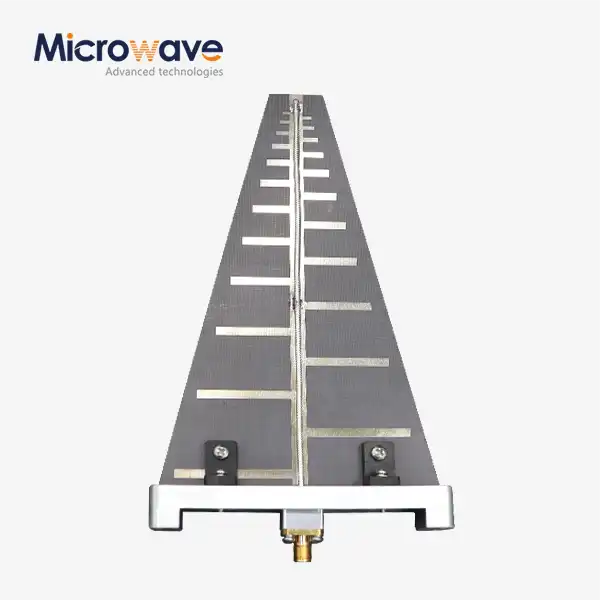 VIEW MORELog Periodic Antenna
VIEW MORELog Periodic Antenna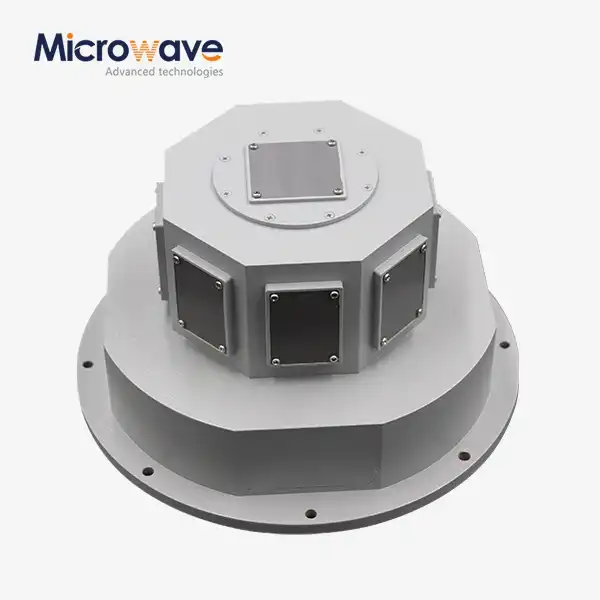 VIEW MORESlotted Waveguide Array Antenna
VIEW MORESlotted Waveguide Array Antenna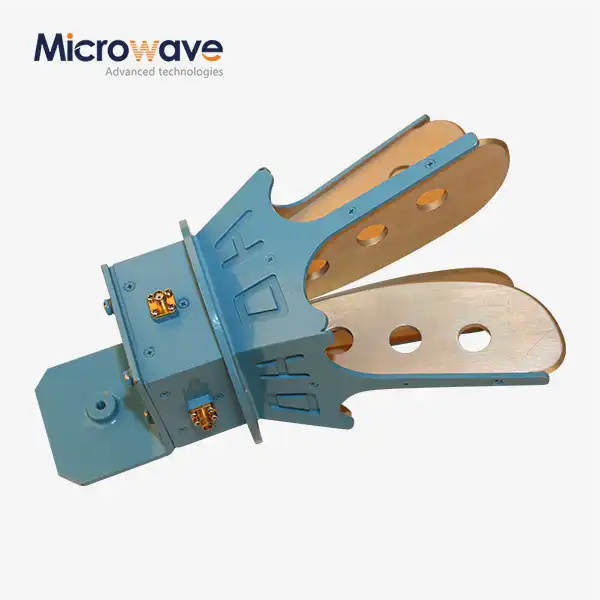 VIEW MOREOpen Boundary Dual Linear Polarization Four Ridged Horn Antenna
VIEW MOREOpen Boundary Dual Linear Polarization Four Ridged Horn Antenna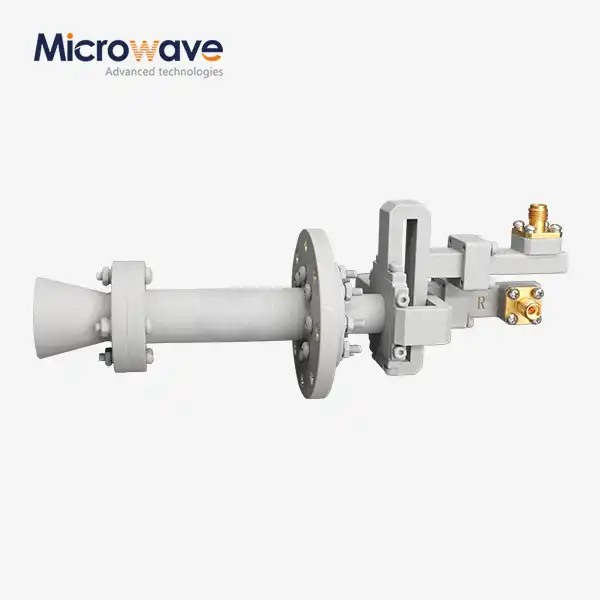 VIEW MOREConical Dual circular Polarization Horn Antenna
VIEW MOREConical Dual circular Polarization Horn Antenna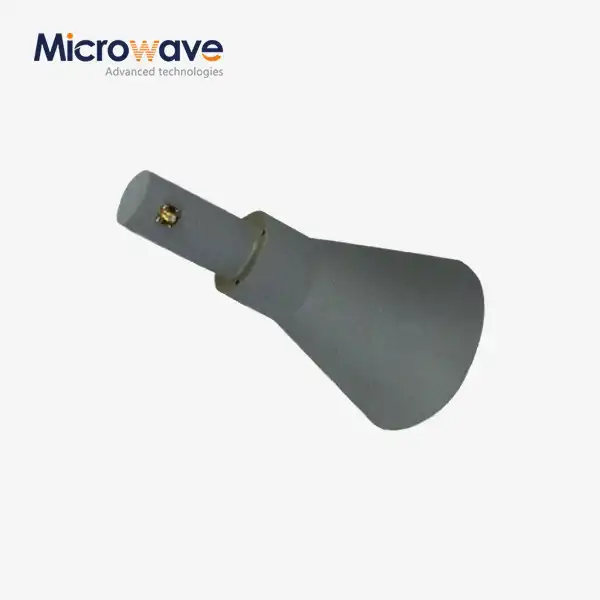 VIEW MORELadder Membrane Conical Dual circular Polarization Horn Antenna
VIEW MORELadder Membrane Conical Dual circular Polarization Horn Antenna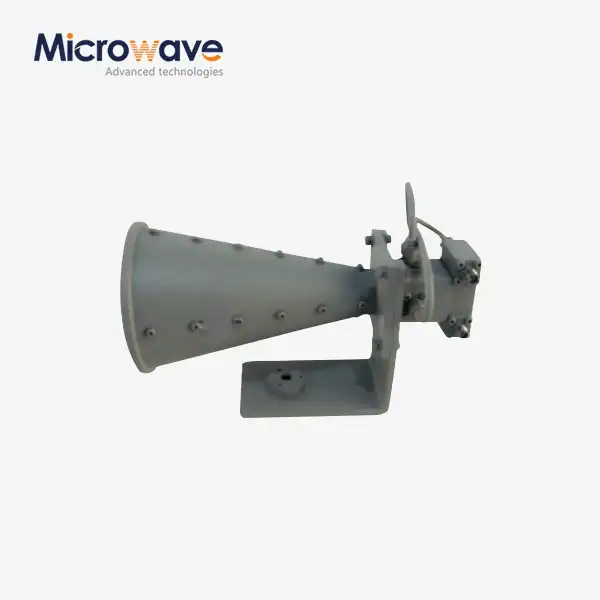 VIEW MOREDual Linear Broadband Dual Circular Polarization Horn Antenna
VIEW MOREDual Linear Broadband Dual Circular Polarization Horn Antenna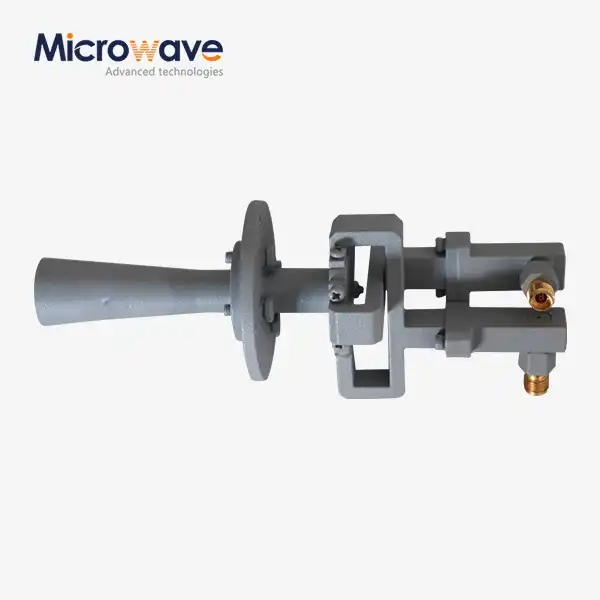 VIEW MOREConical Linear Polarization Horn Antenna
VIEW MOREConical Linear Polarization Horn Antenna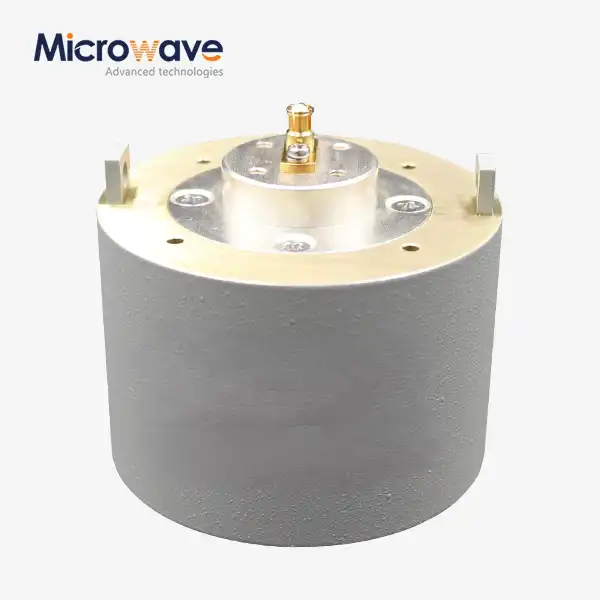 VIEW MOREPlanar Spiral Antenna
VIEW MOREPlanar Spiral Antenna




